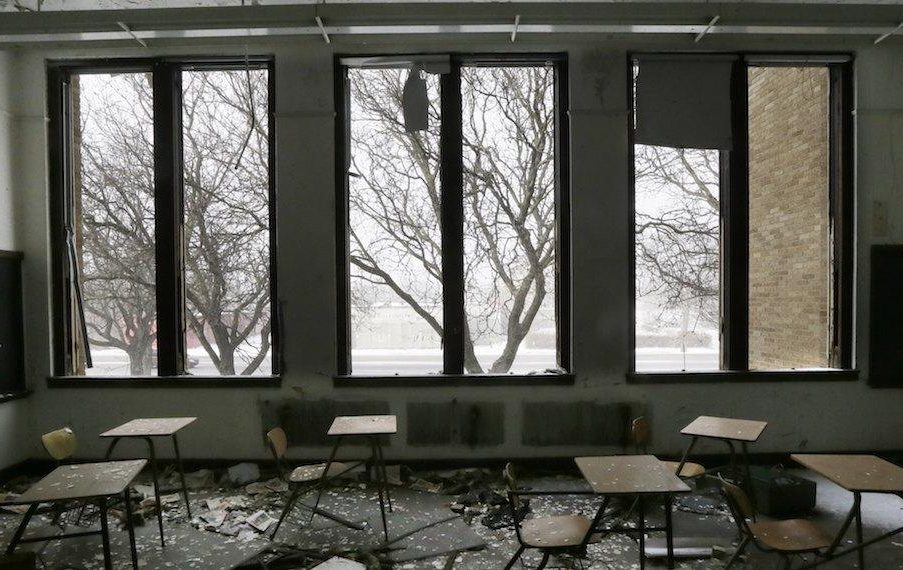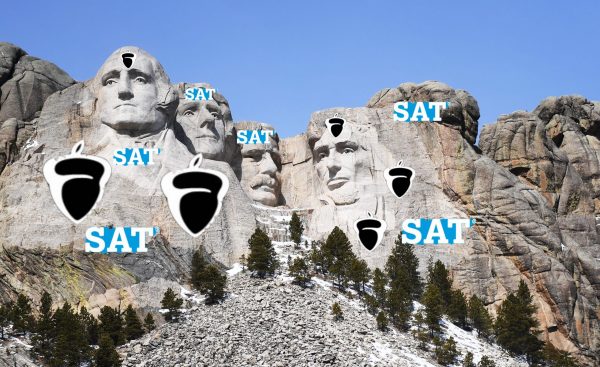Education is in for an overhaul. It won't all be good.
2020: The School Choice Moment

Making education domestic again.
Now is the time for the school choice movement to take the high ground in education and hold it by reforming how education is funded. Thousands of students were forced out of the classroom by COVID-19. They have been studying (or not) at home for weeks. While numerous teachers have displayed grit and genuine altruism in these trying circumstances, the last several weeks have demonstrated the need for flexibility.
This flexibility can come from school choice, which would allow parents latitude to send their children to public schools, private schools, homeschool, or some unique combination suitable to their circumstances and need. This is both a principled and a pragmatic option. In fact, parental choice in education is strongly rooted in the tradition, history, and principles of America and the West.
In classical antiquity parents sent their little ones to the school and tutor of their choice in order to receive an education worthy of a citizen. During the High Middle Ages and afterward, children were apprenticed (again, under the direction of their parents) to learn a trade. In colonial New England, locally controlled town schools took root, while private tutors and small academies prevailed in the American South until after the Civil War.
Family First
The right of parents to determine the education of their children is a fundamental, not an absolute, right. This means that parents have the duty to care, nurture, and educate their child. They do not have the right to abuse or neglect them.
Closely related to this is the assumption that the natural bonds of affection fathers and mothers have for their progeny will lead them to seek what is best for their kids. Parents generally understand the abilities, desires, and goals of their children and are best able to determine the education they need to flourish as human beings. The right of parents to determine the education of their children is also closely connected to religious freedom: if we are really free to worship as we choose, we will be free also to share our faith with our children. For this and so many other reasons, the nuclear family provides the most effective and decentralized form of child-rearing proper for a republic.
The family is necessary to republican life because it reduces the scope of government while providing the best environment to mold virtuous, independent, and contributing citizens who can sustain and enrich their society. For the religious, raising their children in an atmosphere that respects their belief system (even if it does not promote it) is necessary to assist their children in honoring and worshiping God consistently with their beliefs. This is particularly true for Christians, who live under the Biblical injunction to, “train up a child in the way he should go” so that “when he is old he will not depart from it.”
The United States is a limited republic that leaves a broad sphere of activity for parents, private individuals, private institutions, and local government to operate in freely. The exception to this norm, state-run orphanages, serves to prove the importance of the family and the inability of the state to replace it.
Parental choice reflects the responsibility parents have to raise their children, the practical necessity of limiting the role of government in order to preserve freedom, and the truism that children thrive best when properly taken care of by their own families.
Power to the Parents
Sadly, however, many families are unable to provide their child with the education they need to flourish and succeed. Perhaps the key hurdle to this flexibility comes down to money. Many if not most families that would very willingly explore other options lack the money to do so. Currently, a family that wants to homeschool pays taxes for the local school and then has to pay again for their own textbooks and extracurricular activities.
Parents who want to supplement the Zoom education offered by their public school, whether through tutoring or a smaller class in a specific topic, must, again, pay additional money for this privilege. The way to support families who want to homeschool, or even families who like their public school but want to supplement the instruction, is education savings accounts.
The concept of education savings accounts is simple enough. While the details may differ, the basic premise is that the majority of the state per-pupil education funding is given to families. They in turn use the money to pay for educational expenses. There is a great deal of flexibility in how the money can be disbursed, the frequency with which it can be given out, and what qualifies as an educational expense. The options are many: that is the beauty of the thing.
These options are necessary because students and their needs are diverse as well. Students are unique and require various kinds of resources to meet their needs. ESAs provide that flexibility. They can be used to pay for tutoring, online school, private school, public schools (including charter schools, since they are public schools), textbooks, and tests.
Parents were forced to become teachers when their children’s schools were closed. Whether they recognize it or not, these children and parents have been engaged in homeschooling. It is likely many of these parents have discovered three things: first, they enjoy being home and educating their children; second, the education being provided by public schools is sometimes mediocre; and third, large educational districts are not nimble.
In Virginia, for instance, Fairfax County has struggled to turn to online schooling. Many other counties are not providing learning or are not covering new material. Arlington Public Schools in Virginia stated in their Continuous Education Plan that “As part of our commitment to ensuring equity of access to new learning for all students, concepts that students would have normally learned during the fourth quarter will be introduced in September, at the start of the 2020-21 school year.” The inability to move to online education or the decision not to cover new subjects will certainly impact the education of students in these publicly-funded school districts.
Local taxes pay the majority of the cost necessary to run local schools. According to the National Center for Education Statistics, in the 2016-17 school year $736 billion dollars were spent on K-12 education. Of this amount, 8% came from federal funding, 47% from state funding, and 45% from local funding. These taxpayer-funded schools have not been in session for some time now and may possibly be open on a limited basis in the fall. The possibility that schools will not be able to open or will be forced to assume widely different structures requires alternatives. These alternatives do not have to be altogether untried and untested.
Educational Savings Accounts have been in place in several states for years now. Currently, Arizona, Florida, Mississippi, North Carolina, and Tennessee have ESA programs. The experience and wisdom gained in these states can be used to expand existing ESAs and to create new ones in other states and localities. It is not necessary to reinvent the wheel here.
Policymakers should recognize that flexibility is vital in allowing parents to ensure their children receive a rigorous and appropriate education over the summer next year, and beyond. The answer is giving back to parents the tax money that would be spent on their child’s education so that they may spend it for the same purpose in the manner they deem best. It can and should be done with a minimum of regulation and oversight lest it become yet another unwieldy, bureaucratic, and useless government program. The United States has more than enough of those.
Educational Savings Accounts would help protect parental authority, recognize the unique educational needs of children, and provide sorely needed funds and flexibility at this time.
The American Mind presents a range of perspectives. Views are writers’ own and do not necessarily represent those of The Claremont Institute.
The American Mind is a publication of the Claremont Institute, a non-profit 501(c)(3) organization, dedicated to restoring the principles of the American Founding to their rightful, preeminent authority in our national life. Interested in supporting our work? Gifts to the Claremont Institute are tax-deductible.
And that’s a good thing.
We must re-train our students in the art of seeing the highest and best.
A Warning to Calvin University.
Teaching the test has made our country lose its way.
Americans must demand their states save these essential schools.






